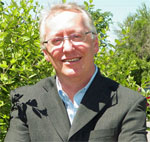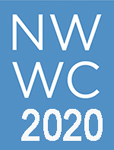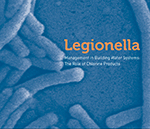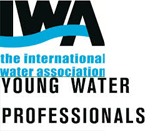 |
||||||||||||||||||||||||
| Subscribe | Past Issues | www.cwwa.ca | Water Source Magazine | ||||||||||||||||||||||||
|
CWWA News
As this pandemic crisis continues, we want you to know that your national association is here to support you. We have redesigned the website at www.cwwa.ca and it is easy to click on the COVID-19 button. This will lead you to several guidance documents, links to more resources and a lot of related news clippings. You would have seen our press releases last month of flushables and on tap water. Since then, our committees have been working on more direct guidance for members and for the public. Click below to see what we’ve been up to. To ensure the continued health and safety of our colleagues in the Canadian water industry, we have decided to postpone the in-person portion of the Canadian Water Summit and Window on Ottawa to June 9-11, 2021 at the Delta Ottawa Centre. We are excited to offer a day of online presentations on some of the program highlights on June 11, 2020.
Federal Initiatives
The latest GHG emissions data, covering 2004 to 2018, reported by facilities across Canada is now available. On March 24, 2020, the House of Commons re-convened to pass emergency legislation to deliver financial aid to Canadians during the COVID-19 pandemic. Legislative action regarding public health measures taken in all jurisdictions to combat COVID-19 is being covered in our sister publication - Workplace Environment Health and Safety and in bi-monthly issues of Health Safety & Environment Regulatory Alert (HSERA). The maximum acceptable concentration (MAC) for Escherichia coli (E. coli) in drinking water is none detectable per 100 mL. Environment and Climate Change Canada and Health Canada published a Draft Science Assessment of Plastic Pollution, on January 30, 2020, to support federal government action on zero plastic waste. The related notice was published in the Canada Gazette, Part I, announcing a 60-day public comment period ending April 1, 2020.
The call for presentations for NWWC2020 is now closed, and our program committee is starting the work of reviewing the proposals and building a program. We had a good response and are looking forward to buiding a great program. In the meantime we've updated our website with registration and exhibitor and sponsorship information.
CWWA and our Security and Emergency Management Committee have developed a new Water Sector Pandemic Action Plan. We’d particularly like to thank Ian McIlwham – Chair CWWA Security & Emergency Management Committee, Regional Municipality of Durham and Greg Solecki CEM CBCP – Past Chair CWWA Security & Emergency Management Committee, Sandhurst Consulting who co-authored the document. Member News
ECO Canada would like to hear from Canadian environmental employers on the business impacts of current events to better understand current and ongoing workforce challenges.
The American Chemistry Council’s Chlorine Chemistry Division has released a new booklet, Legionella Management in Building Water Systems: The Role of Chlorine Products. The five-chapter booklet highlights Legionella management approaches, emphasizing chlorine products because of their demonstrated effectiveness and affordability among currently available options. It provides building owners/managers a practical understanding of the major prevention and mitigation choices and discusses many of the selection factors to consider. It includes an assessment of the pros and cons for each of the following technologies: free chlorine, chloramine (monochloramine, also called combined chlorine), chlorine dioxide, and copper-silver ionization (CSI).
Farokh laqa Kakar was recently selected to receive a coveted Vanier Canada Graduate Scholarship awarded by the Natural Sciences and Engineering Research Council (NSERC). As her award letter describes, “these highly prestigious scholarships are offered to doctoral students who have demonstrated strong leadership skills and a high standard of scholarly achievement in graduate studies in the social sciences and humanities, natural sciences and engineering, and health. Snippings & Clippings
Water Online Public health initiative pivots to focus on work that can be done at a distance. Denver Water’s Lead Reduction Program, which aims to reduce the risk of lead getting into drinking water, is moving ahead even as the utility responds to COVID-19. Purdue University While restaurants, gyms, schools and other buildings are closed indefinitely to prevent the spread of COVID-19, water left sitting in pipes could change in quality. It’s possible that water left sitting for long periods of time could contain excessive amounts of heavy metals and pathogens concentrated in pipes nationwide, say researchers who have begun a field study on the impact of a pandemic shutdown on buildings. AP News Additional funds provided by Congress for Great Lakes environmental improvements will be used to hasten cleanups of highly toxic sites and step up work on other longstanding forms of pollution, federal officials said Thursday. Washington Post Climate change means more floods, which overwhelm urban sewers and send raw sewage into rivers and streams. Philadelphia is aiming to capture rainwater before it flows into city drains. CNN The Trump administration says it will not dump toilet, faucet and sink regulations down the drain. Water Online The spread of COVID-19 seems to have impacted every corner of the country, but what happens when it reaches indispensable members of our workforce, such as drinking water or wastewater utility employees? Water Online Manganese is one of the most abundant metals in our Earth’s crust, often occurring with iron. It is a component of over 100 minerals but is not found naturally in its pure elemental form. Manganese is an element essential to the proper function for both humans and animals, as it is required for the functioning of many cellular enzymes. At high concentrations in water however it can cause a bitter taste and stain fixtures, appliances and laundry. Water Canada A new test to detect SARS-CoV-2 in the wastewater of communities infected with the virus is being developed by researchers from Cranfield University and the Institute of Geochemistry. A new policy report, “Electronic Registration Systems for Cooling Towers – Improving Public Health and Sustainability Outcomes”, published by the Urban Sustainability Directors Network (USDN) proposes a standardized yet flexible template for cooling tower registries that are designed to improve health outcomes, address disparity in affected populations, and increase water and energy efficiency. Smart Brief As an executive coach, my key task in this critical time of change is to help leaders remain calm within the storm. By modeling that confident, capable spirit to their team, giving clear direction and providing transparent communication, leaders will help everyone to feel calmer and act as a unified team. |
||||||||||||||||||||||||







